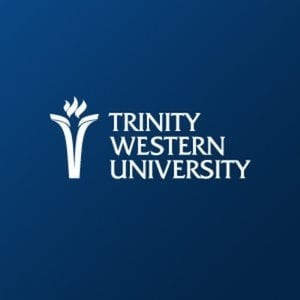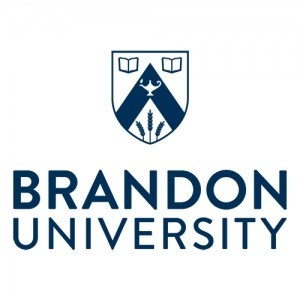Photos of university / #uwinnipeg
The Bachelor of Economics program at The University of Winnipeg is a comprehensive four-year undergraduate degree designed to provide students with a solid foundation in economic theories, quantitative methods, and real-world applications. This program aims to equip students with critical thinking and analytical skills necessary to understand and address complex economic issues both locally and globally. Throughout the course of study, students will explore various areas including microeconomics, macroeconomics, econometrics, public policy, and international economics, among others. The curriculum is structured to balance theoretical knowledge with practical experience, encouraging students to apply economic principles to solve actual problems faced by governments, businesses, and communities. Students will also have opportunities to engage in research projects, internships, and seminars that foster experiential learning and professional development. The program prepares graduates for diverse career paths in government agencies, financial institutions, consulting firms, international organizations, and academia. Additionally, students may choose to pursue graduate studies to further specialize in economic analysis or related fields. The University of Winnipeg’s Economics program emphasizes a collaborative learning environment, supported by experienced faculty members dedicated to mentoring students and promoting academic excellence. With its focus on experiential learning and critical inquiry, this degree aims to produce graduates who are not only well-versed in economic theories but also capable of applying their knowledge to create positive impacts in society. The program’s flexible structure allows students to tailor their education according to their interests and career goals, making it an ideal choice for those aspiring to become future economists, policy analysts, or business leaders.
The Bachelor of Economics program at The University of Winnipeg offers an in-depth exploration of economic theory, quantitative analysis, and their applications to real-world issues. Over four years, students will develop a strong foundation in microeconomics, macroeconomics, and econometrics, enabling them to analyze economic problems and propose effective solutions. The curriculum is designed to balance theoretical understanding with practical skills, preparing graduates for careers in government, business, finance, and research institutions.
Throughout the program, students will engage with a variety of courses covering topics such as international trade and finance, public policy analysis, behavioral economics, and environmental economics. Emphasis is placed on critical thinking, data analysis, and ethical considerations in economic decision-making. Students will have opportunities to participate in research projects, internships, and seminars, fostering the practical application of economic principles.
The program also encourages interdisciplinary collaboration and offers electives that allow students to tailor their studies according to their interests, including courses in political science, statistics, and business. Skilled faculty members with extensive research backgrounds will mentor students, guiding them through rigorous coursework and personal development. Graduates of the Bachelor of Economics program at The University of Winnipeg will be well-equipped with the analytical tools and knowledge necessary to thrive in dynamic economic environments and to contribute meaningfully to society.
The Bachelor of Arts in Economics at The University of Winnipeg requires students to complete a comprehensive curriculum designed to provide a solid foundation in economic theory and applied economics. The programme typically spans four years and includes core courses in microeconomics, macroeconomics, and quantitative methods. Students are expected to engage with courses that develop their analytical and critical thinking skills, including introductory economics, intermediate economic theory, and advanced topics such as public economics, international economics, and economic development.
In addition to required coursework, students have opportunities to specialize through electives in areas like financial economics, environmental economics, and urban economics. The programme emphasizes the application of economic models and statistical techniques, requiring students to undertake practical data analysis projects and research assignments. There is also a focus on understanding the economic implications of policy decisions, preparing students for careers in government, private sector, or graduate studies.
Students must complete a combination of lecture-based courses, seminars, and possible internships that enhance their practical understanding of economic issues. A senior thesis or capstone project is often part of the final year requirements, allowing students to conduct independent research under faculty supervision. Furthermore, students are encouraged to develop their communication skills through presentations and written reports.
The degree also aims to foster a global perspective by including courses that examine international economic relations and global markets. Throughout the programme, students are supported by faculty members who are engaged in research and consultancy in various economic fields, providing mentorship and real-world insights. To graduate, students must accumulate a specified number of credits as outlined by the university's undergraduate regulations, typically including general education requirements that promote well-rounded academic development. Overall, the Bachelor of Arts in Economics at The University of Winnipeg prepares graduates for diverse roles in economic analysis, policy-making, and further graduate education.
Want to improve your English level for admission?
Prepare for the program requirements with English Online by the British Council.
- ✔️ Flexible study schedule
- ✔️ Experienced teachers
- ✔️ Certificate upon completion
📘 Recommended for students with an IELTS level of 6.0 or below.
The University of Winnipeg offers a comprehensive approach to financing studies within its Economics (4 years) undergraduate program. Prospective students can explore various funding options to support their educational pursuits. The university provides detailed information about scholarships, bursaries, and awards specifically targeted at economics students, which can significantly offset the costs of tuition and related expenses. These financial aid opportunities are often merit-based, requiring students to demonstrate academic excellence, leadership qualities, or community involvement. In addition to university-specific awards, students are encouraged to apply for external scholarships and grants available through government programs, private organizations, and professional associations dedicated to economic studies.
The university also offers work-study programs that enable students to gain practical experience while earning income to help finance their education. These opportunities typically involve part-time employment either on-campus or within affiliated community organizations, allowing students to develop relevant skills and build professional networks in addition to earning money. Private loans and lines of credit are other avenues that students may consider, with the university's financial aid office providing guidance on how to navigate these options responsibly.
Students are also advised to develop a detailed financial plan before starting their studies to ensure they can meet their educational expenses throughout the four-year duration. Budgeting advice, debt management resources, and financial literacy workshops are available through the university’s student services. International students, in particular, should explore specific scholarships, government sponsorships, or family sponsorships, as they often have different funding avenues compared to domestic students. The University of Winnipeg remains committed to supporting its students financially and provides dedicated advising to help each student identify the best combination of scholarships, work opportunities, and loans to finance their Economics degree efficiently.
The Bachelor of Arts in Economics at the University of Winnipeg is a comprehensive four-year undergraduate program designed to provide students with a solid foundation in economic theory, quantitative methods, and real-world applications. The curriculum emphasizes critical thinking, analytical skills, and an understanding of both microeconomic and macroeconomic principles. Throughout the program, students explore topics such as economic development, international trade, financial markets, and public policy, preparing them for diverse careers in government, business, finance, and research.
Students have the opportunity to engage with experienced faculty members who are active researchers and experts in their fields, fostering an environment of inquiry and intellectual growth. The program encourages a multidimensional approach to economics, integrating practical case studies, data analysis, and policy analysis to equip graduates with the skills needed to analyze complex economic issues critically. The university provides modern facilities and resources, including access to statistical software and economic databases, supporting hands-on learning experiences.
Beyond coursework, students can participate in internships, co-op placements, and research projects to gain real-world experience and enhance their employment prospects. The degree also offers flexibility, with elective courses allowing students to explore minors or additional concentrations such as political science, business administration, or environmental studies. The University of Winnipeg’s strong ties to governmental agencies, local businesses, and international organizations provide valuable networking opportunities for students.
Upon completion of the program, graduates are well-prepared for careers in economic analysis, policy development, banking, consulting, or further academic study. Many alumni pursue graduate degrees in economics, business, or public policy, leveraging the bachelor's degree as a stepping stone to advanced opportunities. The program emphasizes social responsibility and ethical considerations, encouraging students to apply economic principles for the betterment of society. Overall, the Bachelor of Arts in Economics at the University of Winnipeg aims to develop informed, capable individuals ready to address contemporary economic challenges with confidence and integrity.



